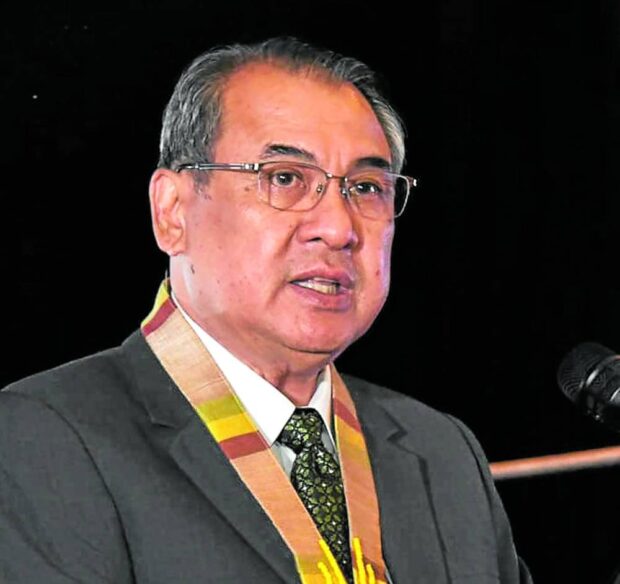
Supreme Court Chief Justice Alexander Gesmundo PHOTO FROM SUPREME COURT FB PAGE
Acknowledging that the country’s antiterror law leans in favor of the government, Supreme Court Chief Justice Alexander Gesmundo on Wednesday exhorted all magistrates in the country to try harder to balance the state’s police power with the rights of individuals.
“Both [state police power and individual rights] are essential for the enjoyment of the blessings of democracy as espoused by the Constitution,” the Chief Justice said at a legal forum on the antiterror law in Cebu City.
“After all, public interest is but an aggregate of private interests—all of which deserve equal protection,” he said in a discussion of proposed judicial rules on the controversial antiterror law (Republic Act No. 11479).
Gesmundo said the high tribunal found it necessary to provide a “procedural framework” to set a limit for legitimate acts authorities could take in enforcing the antiterror law as well as lay out the possible consequences “against potential abuses of state agents.”
“Now, no longer is the court passive and reactive in the enforcement of our constitutional rights. It has, through the promulgation of rules, become proactive in protecting these rights,” the Chief Justice added.
“Procedures that lean heavily in favor of law enforcement will expose the fundamental rights of persons to the danger of abuse. While those that lean intensely in favor of liberties will expose the population’s lives and safety to the devastating effects of terrorism,” he pointed out.
The country’s judicial system must be “responsive to the need of protecting individual fundamental freedoms while allowing the state effective law enforcement for the protection of the public,” the Chief Justice said.
Gesmundo said one of the measures under study is to compel courts to require a response from individuals before granting motions on surveillance authorizations, designations, bank inquiries and freeze orders.
These matters were some of the very issues raised in the 37 separate petitions challenging the constitutionality of RA 11479 after it was passed by the 18th Congress in 2020.
But in 2021, the high court ruled that most of the law, except for two provisions, was “not unconstitutional.”